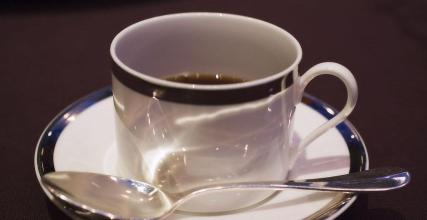An introduction to the characteristics of grinding degree according to the description of coffee flavor in Guatemala.
Guatemalan coffee has a strong aroma, even if you don't drink it, just smelling it is already a pleasure. Antigua coffee has a rich and velvety mellow, rich and lively aroma, and fine sour taste. When the attractive fragrance lingers on the tip of your tongue, there is an indescribable mystery. You may feel dull at the first sip, but as the coffee cools down, you will find it slightly sweet and be surprised by its depth.
Antigua coffee is popular with most coffee lovers only because of its distinctive aroma. Because it is planted in the hills of volcanoes, it can retain its own characteristics more than Costa Rica, the main reason is that it has more geographical and climatic advantages than Costa Rica. Guatemala is located in the tropics, but due to the relatively high altitude, the climate is mild, it is a subtropical climate. Under the influence of this climate, coffee trees blossom and bear fruit more slowly than coffee trees in other parts of the world. However, the mild climate and fertile soil make it an excellent environment for growing coffee.
The coffee industry, run by the Mayans, once boomed Guatemala's economy and dominated the national economy. Unfortunately, the political situation in Guatemala is not good for these coffee growers. High output is usually a sign of a country's overall economic prosperity. However, coffee production in Guatemala has declined relatively, at 700kg per hectare, compared with 900kg per hectare in El Salvador and 1700 kg per hectare in Costa Rica. Guatemalan coffee exports are controlled by private companies, but the National Coffee Council controls other sectors of the coffee industry.
Antigua is the oldest and most beautiful city in America. As early as 1543, Antigua was the capital of all colonial times in Central America, and the Government House of Spain was also set up here. After the great earthquake of 1773, the volcano destroyed the once-prosperous capital in an instant, robbing it of all its prosperity and beauty overnight. The whole city of Antigua was destroyed, so the capital was moved to Guatemala City. After this subversive mountain city, the splendor has disappeared for more than 200 years, and Antigua has never swaggered again. After being dull, Antigua is now run by the last remaining Indians. These hardworking and strong Indians became later coffee producers. They not only discovered the rich and attractive unique smell of Antigua coffee, but also brought it to people all over the world. The coffee beans in each producing area have their own characteristics, and they have won a lot of praise for Guatemala in the international community, especially the perfect coordination of the sour, sweet and mellow texture of Antigua. Add a hint of smoke and emphasize its mystery, and after tasting it, you will have a reason not to look for substitutes everywhere.
Guatemalan coffee beans are mostly cultivated in high-altitude volcanic soils belonging to the most advanced Arabica varieties. Due to the long ripening period, the beans are medium and dense (Guatemalan coffee beans are graded not on the basis of particle size, but on the basis of shortcomings), and the bean color is dark turquoise. The unique sour taste of fragrance, mellow, sweetness and freshness is characterized by the aroma and taste of coffee beans hidden in its sour taste. Therefore, coffee beans with this characteristic can be called first-class coffee beans. The name of the product is suitable for baking degree and taste characteristics. There are few places in the world, such as a variety of high-quality coffee beans produced in Guatemala. The excellent quality of Guatemalan coffee beans is due to the unique conditions of their producing areas, including different climate changes in each region, rich soil formed by volcanoes, abundant natural water resources, high-altitude mountains and shady, moist forests, etc.

Important Notice :
前街咖啡 FrontStreet Coffee has moved to new addredd:
FrontStreet Coffee Address: 315,Donghua East Road,GuangZhou
Tel:020 38364473
- Prev

Fresh and bright taste introduction to the grindability and flavor of Yega Shifeiwaka coffee
Ethiopia, let's first talk about the origin of coffee. In about the sixth century, when Kardai, an Arab shepherd, was driving sheep to the Ethiopian prairie for grazing, he was very excited and excited to see each goat. He felt very strange. Later, after careful observation, it was found that these sheep were excited only after eating some kind of red fruit. Cardai tasted it curiously.
- Next

Yunnan Tieka Coffee Flavor description, Grinding degree, Taste characteristics, Fine Coffee processing methods
During the Tang Dynasty, GE Luofeng, the king of Nanzhao, was sent to Chang'an to worship the king of the Tang Dynasty. Wang asked: where is the king? The remote guide said: under the clouds in the south. So in the eyes of the imperial court, Yunnan was the name of the southwest frontier of the people's motherland. In the sixteenth year of the Yuan Dynasty (728), the King of the Tang Dynasty sealed the cabinet of Luofeng as Ningzhou, which was directly ruled by the central government in the Western Jin Dynasty of Yunnan, which was one of the 19 states in the country at that time. Iron was widely used in Yunnan at this time.
Related
- Detailed explanation of Jadeite planting Land in Panamanian Jadeite Manor introduction to the grading system of Jadeite competitive bidding, Red bid, Green bid and Rose Summer
- Story of Coffee planting in Brenka region of Costa Rica Stonehenge Manor anaerobic heavy honey treatment of flavor mouth
- What's on the barrel of Blue Mountain Coffee beans?
- Can American coffee also pull flowers? How to use hot American style to pull out a good-looking pattern?
- Can you make a cold extract with coffee beans? What is the right proportion for cold-extracted coffee formula?
- Indonesian PWN Gold Mandrine Coffee Origin Features Flavor How to Chong? Mandolin coffee is American.
- A brief introduction to the flavor characteristics of Brazilian yellow bourbon coffee beans
- What is the effect of different water quality on the flavor of cold-extracted coffee? What kind of water is best for brewing coffee?
- Why do you think of Rose Summer whenever you mention Panamanian coffee?
- Introduction to the characteristics of authentic blue mountain coffee bean producing areas? What is the CIB Coffee Authority in Jamaica?

